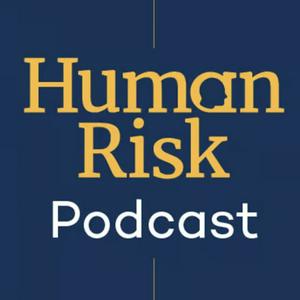Ella Jenkins & Pete Dyson on Why Do Cyclists Run Red Lights?
Why do cyclists in London run red lights? It's against the law, and yet, if you've cycled, driven or just observed London's cyclists, you'll know that many of them don't stop when there's a red light. Confession time: I'm one of them. Not all the time, but some of the time, and weirdly not when I'm in Munich — the other city I live in — but only in London.The question of why this happens — not just my red light running, but the act in general — is the subject of this episode. Because I think this seemingly simple act can reveal so much about our compliance with rules, our perception of risk, and the way environments shape behaviour.To unpack these insights, I’m joined by Ella Jenkins, Associate Director at Thinks Insight, and Pete Dyson, a behavioural science researcher at the University of Bath and co-author of Transport for Humans. They've been part of a research team on a study commissioned by Lime, the electric bike and scooter company, which explores why cyclists in London behave the way they do.What we discover isn’t about recklessness—it’s about confidence, social signalling, poor infrastructure, and the surprising psychology of compliance. In our conversation, we examine the drivers of red-light running, the effectiveness of different interventions, and what this means for broader behaviour change.Whether you’re a policymaker, a cyclist, or simply someone curious about how our minds and cities interact, this episode offers practical insights into one of the most visible — and misunderstood — forms of everyday noncompliance.Guest BiographiesElla Jenkins is an Associate Director at Thinks Insight, a strategy and research consultancy that helps clients understand human behaviour and deliver change. She led the research project commissioned by Lime to understand why cyclists in London run red lights. With a background in behavioural science and a passion for applying insights in real-world contexts, Ella brings both analytical rigour and empathy to her work.Pete Dyson is a behavioural science researcher at the University of Bath, where he focuses on transport systems and human behaviour. He is the co-author with Rory Sutherland of the influential book Transport for Humans: Are we nearly there yet? and previously served as the Principal Behavioural Scientist at the UK Department for Transport. He's also the current Cycling Mayor for the UK City of Bath.Pete blends practical policymaking experience with a deep understanding of the behavioural levers that shape how we move through the world.AI-Generated Timestamped Summary[00:00:00] Introduction and personal confession about red-light running[00:01:15] Overview of the Lime-commissioned research [00:03:20] Introducing Ella Jenkins and Pete Dyson[00:05:45] The origins and goals of the study[00:09:05] Red-light running as a defensive rather than reckless behaviour[00:12:08] Confidence and frequency of cycling linked to rule-breaking[00:13:14] Perceptions versus reality of who breaks the rules[00:16:32] The role of infrastructure and signal phasing[00:18:54] Social norms and peer influence on cyclist behaviour[00:21:46] Trust in the rules versus lived reality [00:24:20] Designing for behavioural cues[00:28:15] Comparison with other cities like Munich [00:30:58] The emotional context of cycling[00:34:46] Enforcement and views on potential interventions[00:38:12] Habit formation and unintended nudges [00:41:23] The interplay between education and empathy[00:46:49] Final reflections and Christian's closing thoughtsLinksElla on LinkedIn: https://www.linkedin.com/in/ella-jenkins/Pete on LinkedIn: https://www.linkedin.com/in/pete-dyson-9ba5301b/What drives red light running in London cyclists?, the research we discuss: https://fileserver.britainthinks.com/dl/wH4CcDyRg8bVThinks Insight: https://www.thinksinsight.com/Lime Bikes: https://www.li.me/en-gbTransport for Humans: https://www.transportforhumans.com/Pete's previous appearance on the show talking about Transport for Humans: https://www.humanriskpodcast.com/pete-dyson-on-making-transport-more-human/The announcement of Pete as Cycling Mayor of Bath: https://www.bath.ac.uk/announcements/the-bicycle-mayor-of-bath-pete-dyson/


